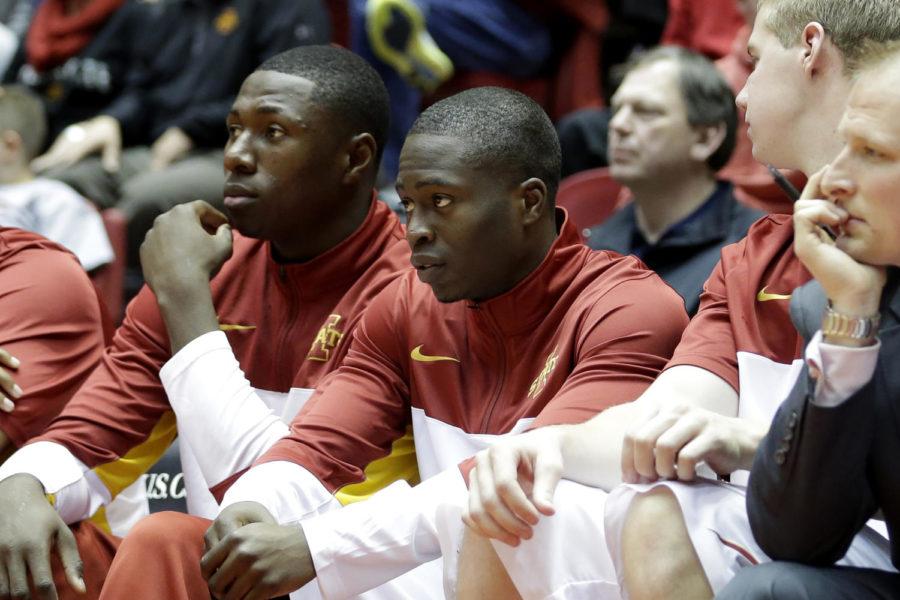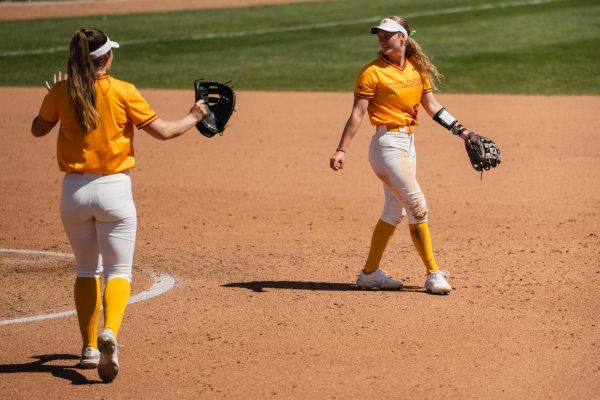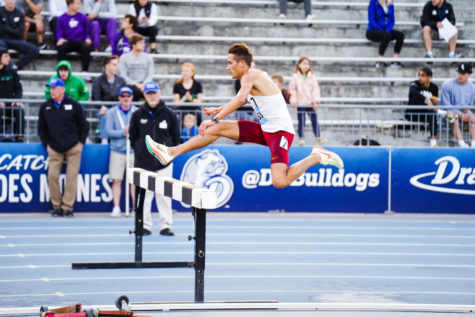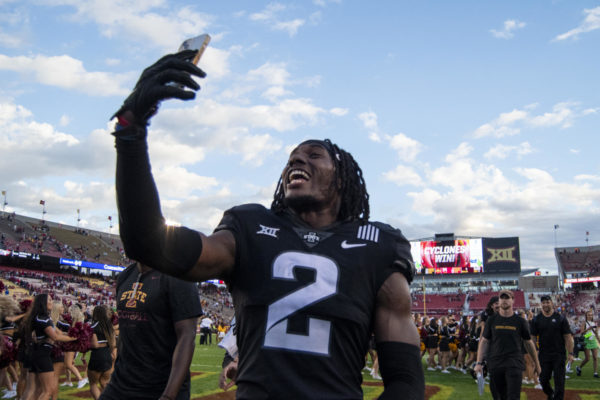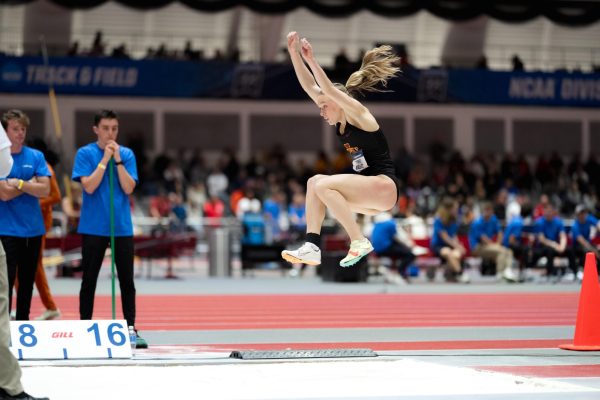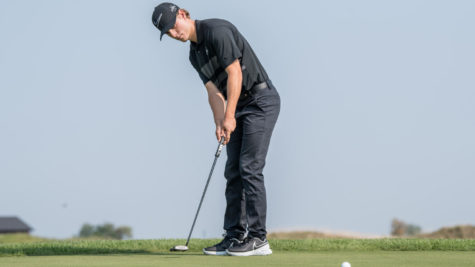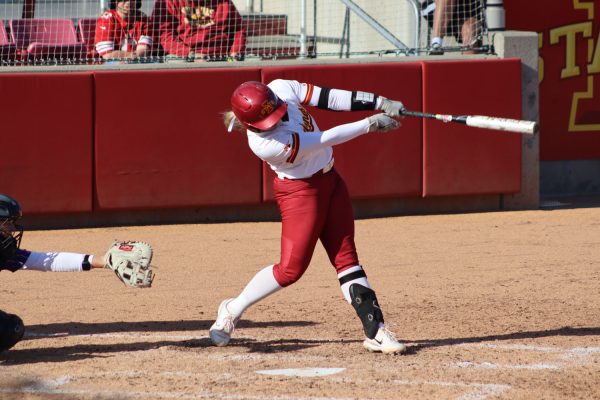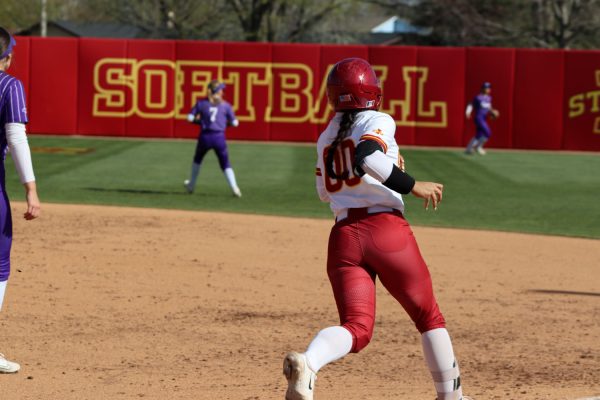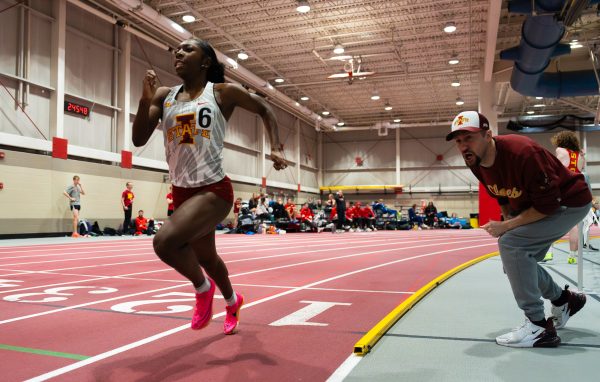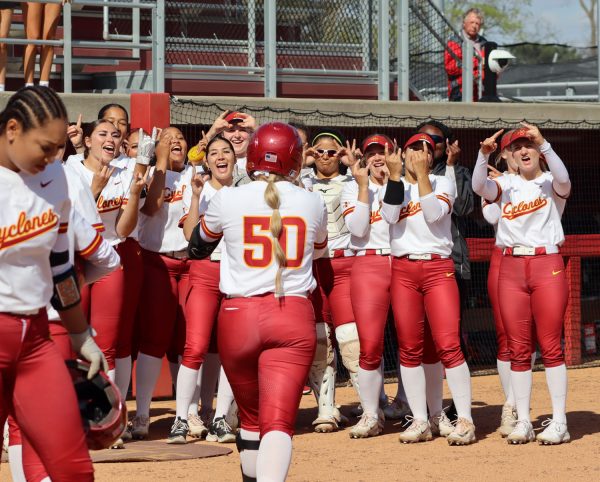How has Iowa State Athletics handled past sexual misconduct cases?
October 10, 2021
Editor’s note: This article contains sensitive information regarding sexual assault and sexual abuse cases involving former Iowa State athletes.
Trigger warning: This article contains mention of sexual abuse, sexual assault.
AMES — The news of Xavier Foster’s dismissal from the Iowa State men’s basketball program on Friday has shaken up the Ames and Iowa State community, as well as the program’s outlook for the season ahead.
At the time of Foster’s dismissal from the team at 3 p.m. Friday, no charges had been filed against him or at the time of this publication Monday, in an Ames Police Department ongoing sexual assault investigation in which he’s considered a “target” according to the Des Moines Register.
Iowa State did not offer a specific reason as to why Foster was dismissed in Friday’s release.
The alleged victim reported her encounter with Foster to police on Oct. 11, 2020, after she completed a sexual assault kit at Mary Greeley Medical Center according to court records. The Ames Police Department executed a search warrant and collected DNA swabs at Foster’s residence in June.
Now that Foster is no longer a member of the program, the Cyclones, Ames Police Department and all other parties involved will now go forward as the sexual assault investigation is still ongoing.
“We hold our program to high standards and there are expectations that our student-athletes be accountable both on and off the court,” T.J. Otzelberger, men’s basketball head coach, said in Friday’s press release announcing Foster’s dismissal. “After much consideration, I have decided that this is necessary as we continue to build our culture.”
Now that we’re here, let’s examine how this process — Foster’s dismissal and the work done so far by the Ames Police Department — compares to how previous Iowa State men’s basketball coaching regimes, the Ames Police Department, judicial system and Iowa State Athletics officials have dealt with sexual misconduct cases involving previous athletes.
Bubu Palo
Palo, a member of Iowa State men’s basketball from 2009-2014, was arrested and charged with sexual abuse on September 7, 2012, after a woman came forward and told Ames Police she was raped by Palo and a friend off-campus in May 2012.
Palo was suspended from the men’s basketball team.
Palo and Spencer Cruise plead not guilty to charges of sexual abuse on Sept. 19, 2012. After Palo and Cruise’s attorneys challenged the ruling of second-degree assault, charges were dropped against Palo and Cruise due to “receipt of additional evidence” on Jan. 14, 2013. That same day, Iowa State Athletics reinstated Palo to men’s basketball team.
He would return to the team and play 17 of the final 19 games of the 2012-13 season.
But the situation only grew from there.
An administrative law judge at Iowa State heard the case in April 2013, and would rule in May he found Palo not guilty, stating specifically Iowa State did not have sufficient enough evidence. In June 2013, the Iowa State Judicial Affairs Committee, the committee that investigates and oversees possible violations of the Student Code of Conduct at Iowa State, appealed the decision to then-Iowa State president Steve Leath.
Five days before the start of the academic year on Aug. 30, President Leath ruled Palo violated the Student Code of Conduct and he was indefinitely suspended from the basketball program. Palo would appeal to the Iowa Board of Regents in September 2013 but his appeal was denied in December.
Palo, an Ames native, requested judicial review of the regents’ decision and that he would be allowed to play for the Cyclones during the investigation into the decision. On Jan. 16, 2014, District Court accepted his request to play on the team. But Iowa State requested the court allow them to keep Palo off the team on Jan. 22, 2014.
Two days later, the request was denied but Palo was benched for the remainder of the season.
In August 2014, the District Court overturned the Board of Regent’s decision, only for The Board of Regents to appeal that decision. On July 9, 2015, the Iowa Court of Appeals dismissed the appeal, saying it was a “moot point” since Palo was no longer a student at Iowa State. In September 2015, Palo settled out of court with his accuser, who he sued for wrongful accusation.
On April 13, 2016, Palo filed a lawsuit against Iowa State University and the Board of Regents, believing they mishandled his case. The lawsuit was thrown out by Story County Judge Bethany Currie in April 2019.
Kenny Pratt
Unlike Foster, Kenny Pratt, a former Iowa State men’s basketball player from 1995-1997, was dismissed from the team by Iowa State head coach Tim Floyd after being charged with third degree sexual abuse on October 8, 1995. Pratt allegedly sexually assaulted a 19-year old female student in Willow Hall. He was reinstated in November 1995 after the charges were dropped.
Story County Attorney Mary Richards said there was not enough evidence to move forward with the case.
Alfonso Cruz
While he was an Iowa State wrestler, Alfonso Cruz, along with a friend, dealt with similar accusations. Cruz and his friend were arrested on Nov. 22, 1995 and later charged with third degree sexual abuse.
Cruz was suspended from the Iowa State wrestling program after being charged. Cruz was an NCAA Tournament qualifier a year prior with a 31-11 record.
This charge came one month after Pratt was charged with sexual abuse in October 1995.
Brent Nash and Royce Hooks
Brent Nash and Royce Hooks, two former Iowa State football players, were suspended from the team by head coach Dan McCarney after being charged with second degree sexual abuse on Feb. 12, 2002.
Both were accused of assaulting an 18-year old woman on Jan. 26, 2002.
Travis Spivey
Travis Spivey, a former Iowa State men’s basketball player, was charged with third degree sexual abuse on June 23, 1999. The charge stemmed from accusations that Spivey raped an unidentified 15-year-old girl and an unidentified 17-year-old girl on June 12, 1999 in his home.
He originally pleaded not guilty to the charges on July 27, 1999. Two months later, Spivey pleaded guilty to the charges and admitted to police he had sex with the 15-year-old girl. Spivey, a junior at the time, transferred to Iowa State from Georgia Tech.
All parties involved agreed to a joint recommendation of five years incarceration, with the term being a suspended sentence. Spivey was listed as a sex offender for the next 10 years. In Feburary 2000, he received a 10-year suspended sentence with five years probation.
Spivey would end up at Salt Lake Community College in Salt Lake City, Utah, during the 1999-2000 season and played for the Bruins.

